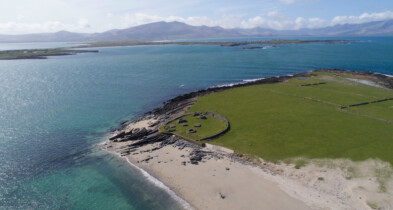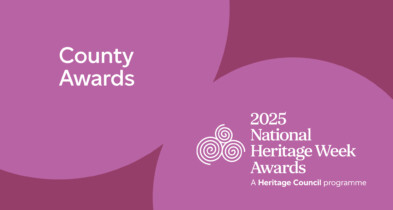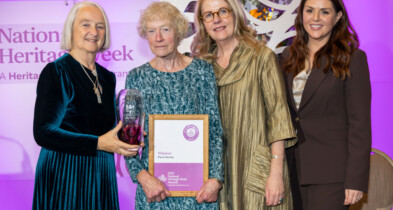
Tips for getting started with your heritage event or project

National Heritage Week 2022 celebrates the full return of in-person events and welcomes back digital heritage projects, which have been hugely popular over the last two years. There are countless approaches you can take and we have brought together some tips to help you hit the ground running.
Keep in mind that this year, National Heritage Week is all about sustainability. To help inspire you, we are encouraging you to consider sustainable heritage and biodiversity. For more information on these themes, visit the Organise a Project page on the website.
Choosing your topic
Your first step will be to decide on your focused topic. We recommend that you choose a topic a) that’s of interest to you, b) that would be of interest to others, and c) on which there’s sufficient information and resources available to develop into a heritage event or project. Remember you can always take an event, project or research that you have already worked on and develop it further. Or you might like to use National Heritage Week to develop new ways to share previous work or reach new audiences.
Choosing your format
Once you have your topic — which could be anything from the natural heritage of a nearby bog to the built history of your town to stories of your local GAA club — think about how it might be best presented. Some topics work well presented as an in-person event such as a walking tour, exhibition or hands-on workshop. Other topics are best presented in a digital format, such as a video, podcast or moderated social media page. Consider which format would create the best experience for your audience. Learn more about event and project formats on the Developing your Event / Project page and pick up some tips on creating digital projects on the Technical Resources page.
Building your team
Once you have your topic, you will need to consider ‘who’s going to work on your event or project’? Do you have the time and skills to work on the event or project on your own, or will you need help? Consider the business mantra ‘you do what you do best, outsource the rest’ — in this case, ‘outsourcing’ could mean taking the opportunity to work with willing family members, friends, neighbours or members of your heritage group whose expertise would complement your skills. Teamwork might be particularly useful if showcasing your event or project involves learning new technical skills.
Make a schedule – and stick to it.
Make sure to give your event or project a structure. Working backwards from when you need to submit your event or project, give yourself a start and end date. A timeline of key milestones that you need to meet along the way will keep you motivated and help you complete your event or project in time for National Heritage Week. If you’re working as a team, make sure to have a leader, who will co-ordinate the work of the various team members and keep you on track. Don’t forget, project submissions will open on Wednesday, 15th June and the deadline for submissions is Tuesday, 23rd August.
Do your research
Most events and projects will require some level of research. Before you start, have a think about what you would like to find out about your chosen topic and where you might find that information. Helpful questions to keep in mind when researching are the 4Ws and the 1H – who, where, why, when, what, and how? We have brought together some great research resources to help you during this stage — visit the Developing your Event / Project page and the Useful Links page to learn more.
As you prepare for National Heritage Week, we will be sharing more information, tips and resources to support you. Follow our social media pages and sign up for our email newsletter to keep up to date.

